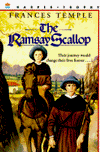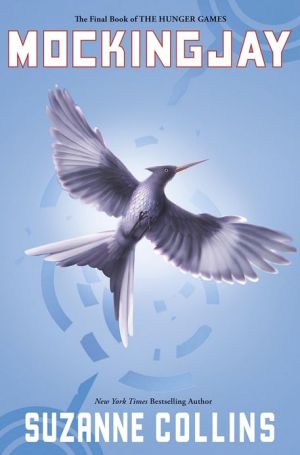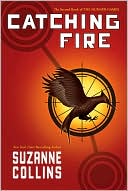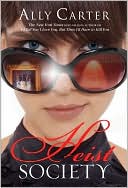Ramsay Scallop
The year is 1299. Fourteen year-old Elenor reluctanly awaits the return of her betrothed — a man she hardly knows — from the Crusade. Thomas, broken and disillusioned from years of fighting, finds the very idea of marriage and lordship overwhelming. So When the village priest sends them on religious pilgrimage before the marriage, both are relieved. The journey means a postponement of the dreaded nuptials, and a last chance for adventure. As Eleanor and thomas wend their way toward the shrine...
Search in google:
The year is 1299. Fourteen year-old Elenor reluctanly awaits the return of her betrothed — a man she hardly knows — from the Crusade. Thomas, broken and disillusioned from years of fighting, finds the very idea of marriage and lordship overwhelming. So When the village priest sends them on religious pilgrimage before the marriage, both are relieved. The journey means a postponement of the dreaded nuptials, and a last chance for adventure. As Eleanor and thomas wend their way toward the shrine of St. James, they meet mant other pilgrims — each with their own extraordinary tales to tell and ideas to share. There is Etienne, a passionate student of philosophy; Brother Ambrose, gentle teacher of Sschoolboys; practical Marthe, eager for a decent life for her children. And graually Eleanor and Thomas come to realize the glorious possibilities of the world around them... within each other.Publishers WeeklyIn a striking departure from her first two novels ( Taste of Salt ; Grab Hands and Run ), which center on current political and social injustices, Temple travels back to 13th-century Europe for a coming-of-age story about a 14-year-old orphan. Eleanor of Ramsay is betrothed to the rakish Thomas, who has just returned from fighting in the Crusades for eight years. Frightened by the prospect of an arranged marriage to a man she hardly knows, Eleanor worries even more when the town priest sends her and Thomas on a pilgrimage to Spain to atone for the sins of all the townspeople. Along the way Thomas and Eleanor meet up with scholars, peasants and performers, each of whom plays a role in helping the young protagonists to discover their true feelings for each other. Temple's pleasing portrayal of the saintly but plucky heroine guides readers through a rather long-winded journey. While Eleanor's spiritual and emotional awakenings are believable and sensitively wrought, her internal conflicts fail to buoy the tale with any significant doses of humor, pathos or drama. However, readers newly introduced to Chaucer's famous Canterbury pilgrims may find Temple's contemporary style an easier introduction to medieval settings and customs. Ages 11-14. (Apr.)
Chapter One\ Elenor clutched her too-long cloak around her, wrapping her fingers in its edges to keep them warm, and stood on tiptoe in her borrowed shoes. The sound that filled her ears was so piercing and sustained it seemed to be coming from inside her head. She wanted to make sure it wasn't.\ Between the shoulders of the crowd, Elenor caught a glimpse of a beggar-musician, a mangy cat perched near his head. Crouching, she wriggled her way past bellies and elbows. The sound grew louder. Yes, it was the man's hurdy-gurdy, badly rosined, and its screech was devilish. The man's eyes glittered, hypnotic as a snake's, as he cranked.\ "It's a sin," Elenor heard one matron whisper to another.\ "Not natural," the other muttered, shaking her head, transfixed.\ The man's dog crouched on a stool in front of him. His cat sprang onto the dog's back and turned in slow reluctant circles, its whiskers quivering. Its fur stuck out, tense and uneven. As the punishing sound of the hurdy-gurdy rose higher, a mouse scampered from the beggar's hand and skittered up the leg of the dog and onto the cat's back, where it cowered, trembling.\ Do something, Elenor told herself.\ A sudden commotion broke out at the cheese stall nearby. The beggar stopped his playing for a second, craning his neck with the curious crowd. Elenor stuck out a toe and jostled the stool. She jumped back, delighted, as cat, mouse, and dog sprang in opposite directions and disappeared among people's legs. She backed quickly into the thick of the crowd, stamping her feet to warm them.\ Four times now, Carla had let Elenor make the long walk into Peterborough market with FatherGregory. This time was best of all: Michaelmas, last festival of the year before Advent, in the last year of the century, 1299. Excitement and fear were in the wind.\ "We're all trying to be good this year," Father Gregory had told her, "to impress God."\ "In case it's the end of the world?" she had asked, expecting reassurance.\ "That's right."She wished he had added "but don't worry." He hadn't.\ She tried to imagine the end of the world. Even the end of Peterborough market. What would happen to all these boisterous, jostling people? The big stone Peterborough Cathedral, newly built? The pink-cheeked child just now dragging his mother toward the food stalls? The barrows of carrots and onions and turnips, the pig snouts and limp bunches of chickens, the cooks imagining winter stews, the farmers hoping to trade for wooly socks? The beggars, musicians, tumblers ... could they just disappear?\ At the end of the world came Judgment Day. How could people be judged, when each was as full of surprises as a king cake? She, Elenor, was not yet fourteen, still freckled and wild haired, just starting out; she had no idea what might be in her of good or evil.... She tucked the fear of judgment a little deeper. Peterborough market was a rare treat, a rare adventure. Tomorrow she would worry about the end of the world.\ A rickety wooden stage stood lashed to the portico of the cathedral.\ "Which guild is giving us the play?" Elenor asked a farmwife selling chickens nearby.\ "Weavers," the woman answered. "They'll make us forget the cold." She grinned at the girl, showing\ long, yellow teeth. Then she narrowed her eyes, pointing at her with her nose.\ "Ain't you the little lady from out at Ramsay castle, the one that's to marry Lord Thomas, him that's away so long in the Holy Land? "\ Elenor managed a nod, but she pulled her cloak tight around her again and turned away to cut the conversation short. Let the woman mind her own chickens.\ Elenor caught a whiff of roasting chestnuts. A sooty girl was stoking coals under a pan. Closing her eyes, Elenor could feel the heat of the coals on her cheeks, her eyelids glowing. She untied a halfpenny from the corner of her shawl and pressed the coin into the girl's hand, reaching past the smaller children who hovered near the heat. The vendor scooped hot chestnuts into Elenor's shawl, and she hugged them against herself so that the warmth shot through her vest. She scanned the bleachers, saw Father Gregory, and careful not to lose her shoes, climbed toward him.\ The old priest, sitting on the top board, lifted his head. He held open the side of his cape for her, and she crept in.\ They peeled the chestnuts, munching the sweet white meat, scattering the hot shells. The sun shone bravely but the wind blew cold. The makeshift curtains on the stage billowed and flapped, and\ Elenor glimpsed frantic preparations backstage. Farmwives in homespun and blue caught at their market-day coifs, yanking them back into place and tucking in wisps of hair.\ Three loud thuds and the play began. Two child jesters in tights and tunics pulled back the curtains, shimmied up the side supports to tie them, slid down, ran to center stage where they bowed in every direction, and in high, shrill voices proclaimed:\ "Welcome, welcome One and all To the story of Adam And his fall."\ Then the jesters stared at each other, bowed deeply, and hurried offstage.\ Elenor leaned her elbows on her knees and her chin in her hands.\ The stage was decorated with plants and branches to represent the Garden of Eden. Beneath it, red devils draped against the stage supports writhed and groaned, chanting monotonously:\ "Eternal remorse, eternal remorseThe song of the damned is eternal remorse...\ High above, perched on the edge of the bell tower, an angel tried to look serene while pieces of
\ Publishers Weekly\ - Publisher's Weekly\ In a striking departure from her first two novels Taste of Salt ; Grab Hands and Run , which center on current political and social injustices, Temple travels back to 13th-century Europe for a coming-of-age story about a 14-year-old orphan. Eleanor of Ramsay is betrothed to the rakish Thomas, who has just returned from fighting in the Crusades for eight years. Frightened by the prospect of an arranged marriage to a man she hardly knows, Eleanor worries even more when the town priest sends her and Thomas on a pilgrimage to Spain to atone for the sins of all the townspeople. Along the way Thomas and Eleanor meet up with scholars, peasants and performers, each of whom plays a role in helping the young protagonists to discover their true feelings for each other. Temple's pleasing portrayal of the saintly but plucky heroine guides readers through a rather long-winded journey. While Eleanor's spiritual and emotional awakenings are believable and sensitively wrought, her internal conflicts fail to buoy the tale with any significant doses of humor, pathos or drama. However, readers newly introduced to Chaucer's famous Canterbury pilgrims may find Temple's contemporary style an easier introduction to medieval settings and customs. Ages 11-14. Apr.\ \ \ \ \ School Library JournalGr 8 Up-In 1300, 14-year-old Elenor of Ramsay's fianc, Thomas of Thornham, returns from the Crusades. The couple, uncertain of their roles in life and their feelings about each other, are reluctant to wed. Wise Father Gregory sends them on a pilgrimage to Spain; this not only buys them time but forces them to become better acquainted. Their journey is full of unexpected adventures, joys, and hardships. They see new sights, make new friends, and learn new things. By book's end, both are at peace with themselves and gracefully accept their lot. Temple writes fluently of the medieval era, smoothly weaving data on everyday life, religious attitudes, folklore, music, architecture, and crafts into her story. All this detail is fascinating, but it is definitely overdone. The 300+ page text needs a judicious pruning, particularly those scenes included primarily for informational or philosophical purposes such as the mechanics of glassblowing and Moslem beliefs. Unfortunately, Temple's facts aren't always accurate; for starters, she alters the construction dates of Amiens' cathedral, errs in describing Albigensian tenets, and repeatedly refers to vernacular scriptures although at this time the Bible was available only in Latin. Her characters, though intriguing, are, for the Middle Ages, incredibly literate and modern thinking. The Ramsay Scallop also suffers from lack of glossary not all terms are adequately defined in context and a map tracing the pilgrimage essential in a book of this type. A valiant effort that doesn't quite make it.-Ann W. Moore, Schenectady County Public Library, NY\ \








